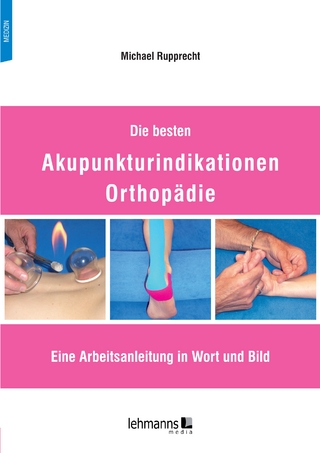
Bringing Zen Home
The Healing Heart of Japanese Women’s Rituals
Seiten
2022
University of Hawai'i Press (Verlag)
978-0-8248-9418-4 (ISBN)
University of Hawai'i Press (Verlag)
978-0-8248-9418-4 (ISBN)
Healing lies at the heart of Zen in the home, as Paula Arai discovered in her pioneering research on the ritual lives of Zen Buddhist laywomen. She reveals a vital stream of religious practice that flourishes outside the bounds of formal institutions through sacred rites that women develop and transmit to one another. Everyday objects and common materials are used in inventive ways. For example, polishing cloths, vivified by prayer and mantra recitation, become potent tools. The creation of beauty through the arts of tea ceremony, calligraphy, poetry, and flower arrangement become rites of healing.
Bringing Zen Home brings a fresh perspective to Zen scholarship by uncovering a previously unrecognized but nonetheless vibrant strand of lay practice. The creativity of domestic Zen is evident in the ritual activities that women fashion, weaving tradition and innovation, to gain a sense of wholeness and balance in the midst of illness, loss, and anguish. Their rituals include chanting, ingesting elixirs and consecrated substances, and contemplative approaches that elevate cleaning, cooking, child-rearing, and caring for the sick and dying into spiritual disciplines. Creating beauty is central to domestic Zen and figures prominently in Arai’s analyses. She also discovers a novel application of the concept of Buddha nature as the women honor deceased loved ones as "personal Buddhas."
One of the hallmarks of the study is its longitudinal nature, spanning fourteen years of fieldwork. Arai developed a "second-person," or relational, approach to ethnographic research prompted by recent trends in psychobiology. This allowed her to cultivate relationships of trust and mutual vulnerability over many years to inquire into not only the practices but also their ongoing and changing roles. The women in her study entrusted her with their life stories, personal reflections, and religious insights, yielding an ethnography rich in descriptive and narrative detail as well as nuanced explorations of the experiential dimensions and effects of rituals.
In Bringing Zen Home, the first study of the ritual lives of Zen laywomen, Arai applies a cutting-edge ethnographic method to reveal a thriving domain of religious practice. Her work represents an important contribution on a number of fronts—to Zen studies, ritual studies, scholarship on women and religion, and the cross-cultural study of healing.
Bringing Zen Home brings a fresh perspective to Zen scholarship by uncovering a previously unrecognized but nonetheless vibrant strand of lay practice. The creativity of domestic Zen is evident in the ritual activities that women fashion, weaving tradition and innovation, to gain a sense of wholeness and balance in the midst of illness, loss, and anguish. Their rituals include chanting, ingesting elixirs and consecrated substances, and contemplative approaches that elevate cleaning, cooking, child-rearing, and caring for the sick and dying into spiritual disciplines. Creating beauty is central to domestic Zen and figures prominently in Arai’s analyses. She also discovers a novel application of the concept of Buddha nature as the women honor deceased loved ones as "personal Buddhas."
One of the hallmarks of the study is its longitudinal nature, spanning fourteen years of fieldwork. Arai developed a "second-person," or relational, approach to ethnographic research prompted by recent trends in psychobiology. This allowed her to cultivate relationships of trust and mutual vulnerability over many years to inquire into not only the practices but also their ongoing and changing roles. The women in her study entrusted her with their life stories, personal reflections, and religious insights, yielding an ethnography rich in descriptive and narrative detail as well as nuanced explorations of the experiential dimensions and effects of rituals.
In Bringing Zen Home, the first study of the ritual lives of Zen laywomen, Arai applies a cutting-edge ethnographic method to reveal a thriving domain of religious practice. Her work represents an important contribution on a number of fronts—to Zen studies, ritual studies, scholarship on women and religion, and the cross-cultural study of healing.
Paula Arai, the author of Women Living Zen: Japanese Buddhist Nuns, received her Ph.D. in Buddhist studies from Harvard University under the mentorship of Masatoshi Nagatomi. She is an associate professor of religious studies at Louisiana State University.
| Erscheinungsdatum | 23.04.2022 |
|---|---|
| Verlagsort | Honolulu, HI |
| Sprache | englisch |
| Maße | 152 x 229 mm |
| Gewicht | 210 g |
| Themenwelt | Sachbuch/Ratgeber ► Gesundheit / Leben / Psychologie ► Alternative Heilverfahren |
| Geisteswissenschaften ► Geschichte ► Regional- / Ländergeschichte | |
| Geisteswissenschaften ► Religion / Theologie ► Buddhismus | |
| Sozialwissenschaften ► Soziologie ► Gender Studies | |
| ISBN-10 | 0-8248-9418-9 / 0824894189 |
| ISBN-13 | 978-0-8248-9418-4 / 9780824894184 |
| Zustand | Neuware |
| Haben Sie eine Frage zum Produkt? |
Mehr entdecken
aus dem Bereich
aus dem Bereich
Buch | Softcover (2023)
Urban & Fischer in Elsevier (Verlag)
32,00 €
Eine Arbeitsanleitung in Wort und Bild
Buch | Softcover (2023)
Lehmanns Media (Verlag)
19,95 €


